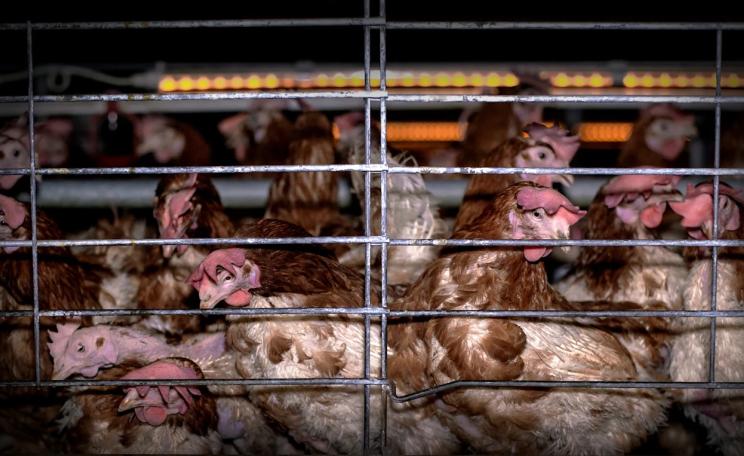Greenwashing has been rampant across the UK business sector, with the food and fashion industries harbouring many of the worst offenders.
Whilst the term ‘greenwashing’ has been around since the 1980s, its common use today reflects how embedded this practice has become in our daily lives.
Ever since sustainability entered the mainstream, it has become impossible to escape companies making claims about their environmental practices – but more worryingly, to decipher which of these claims are actually true.
Research has found that over half of the UK public would be prepared to boycott brands over misleading sustainable claims – but without the time and resources to interrogate the information they are presented with, only 18 per cent have done so.
Sustainable
For years, we at Changing Markets, alongside other campaigning groups, have been calling out greenwashing from major brands and retailers, putting pressure on companies to be transparent and accurate in their claims.
But with minimal repercussions for engaging in these practices, greenwashing has largely been allowed to continue as a standard approach of marketing and promotion. Until now.
As of 6 April, the UK's Competition and Markets Authority (CMA) has gained new powers to act against greenwashing businesses.
Under the Digital Markets, Competition and Consumers Act 2024, these new powers will enable it to directly impose penalties on companies that breach consumer protection laws, which includes those making claims that fail to meet the six principles of the Green Claims Code.
Published by the CMA, the Code sets out clear guidance, including that companies cannot claim that a product is sustainable without taking into account the full life cycle of the product, nor can they make environmental claims which omit information about a product.
Failure
Before now, the CMA had to seek court orders to enforce consumer protection laws, but with these new powers, it can directly impose penalties on companies in breach of this code, which could reach up to 10 per cent of a company's global annual turnover.
For years, greenwashing has been rampant across the UK business sector, with the food and fashion industries harbouring many of the worst offenders.
Supermarkets are often guilty of making misleading environmental claims. A typical example is Sainsbury’s assertion that its beef mince packaging signifies a commitment to the environment, whilst the product inside is one of the most emissions-intensive food products consumers can buy.
Nor is the packaging recyclable at home – putting the onus on consumers to travel all the way back to the supermarket to drop it off.
Greenwashing has been rampant across the UK business sector, with the food and fashion industries harbouring many of the worst offenders.
This focus on packaging diverts attention from the supermarket’s failure to address emissions from meat and dairy sales, which the UK’s Climate Change Committee says must be halved by 2050.
Exported
The CMA’s guidelines state that claims about a product "can be misleading where they don’t reflect the overall impact, or where they focus on one aspect of it but not another".
Tesco similarly features a ‘Now Recyclable’ claim on many of its products, including the front of its Crumble Topping packaging, when in reality these flexible plastics can only be recycled at larger stores, not in household recycling (something they disclose on the back of packets but with no caveat attached to the claim on the front).
Recyclability means both a product is technically able to be recycled and that this happens in practice at scale – not just for those willing to go the extra mile.
The hidden reality is that this type of flexible packaging is practically impossible to recycle into new packaging, even if it is returned to stores.
A recent investigation found that this type of waste packaging collected by Tesco often ends up being exported overseas where it is burnt, rather than recycled.
Eco-friendly
This breaches the CMA’s guidelines on several counts, including ‘the meaning that a consumer is likely to take from a product’s messaging and the credentials of that product should match’, and that claims should ‘not hide or omit important information’.
If Sainsbury’s and Tesco were to receive the maximum penalty from the CMA, they could incur fines of £3.27 billion and £6.82 billion respectively.
Fashion may be the industry best known for its greenwashing – with Changing Markets Foundation’s investigation finding that 59% of sustainability claims by major fashion brands are misleading.
Fast fashion company Boohoo (with plans to rename itself Debenhams) offers a slew of greenwashing examples across its third party brands. According to CMA guidance, online market places are very much accountable and can be liable in relation to misleading environmental claims.
For instance, this Kiss hoodie, made from a blend of polyester and cotton, provides no explanation as to why it is labelled as eco-friendly. Same goes for this AC/DC ‘ Eco friendly’ hoodie.
Dominates
Boohoo’s apparent greenwashing is particularly alarming given that in 2022, the CMA launched an investigation into the company (along with ASOS, and George at Asda) over concerns that the eco-friendly language its brands were using was ‘too broad and vague’.
In March 2024, the CMA announced that Boohoo committed to several measures to ensure transparency and accuracy in its environmental claims.
This included providing clear, verifiable information to support its green claims and using precise terms like ‘organic’ or ‘recycled’ instead of vague labels such as ‘eco’ or ‘sustainable’. The company also pledged to clearly outline the criteria for products included in its environmentally marketed ranges.
However, these latest examples suggest that Boohoo has failed to follow through on these commitments, continuing to mislead consumers with unverified sustainability claims that breach the CMA’s Green Claims Code. If penalised under the CMA’s new powers, the company could face a fine of up to £146 million.
The CMA’s new power to issue fines of up to 10 per cent of turnover is, in a world where the carrot often dominates, the stronger stick we’ve needed for companies looking to exploit consumers with misleading green claims.
Emissions
However, this is only one piece of the puzzle when it comes to holding companies accountable for their damaging environmental practices. We still need solid environmental regulation that levels the playing field by requiring transparent reporting and corporate targets in line with government pledges and commitments.
With food related emissions responsible for up to a third of greenhouse gases globally, and the majority of methane emissions coming from meat and dairy specifically, we need clear regulations for the food industry which require companies to be transparent about their environmental impact and set emissions reduction targets aligned with the Global Methane Pledge.
In fashion, regulation is urgently needed to move away from the fast, high-volume production of disposable clothing, towards production of high-quality pieces, with brands taking full responsibility for the end-of-life management of their products.
These new powers granted to the CMA should act as a deterrent to companies hoping to dupe consumers with more greenwashing, whilst also being an invitation for UK businesses to focus their resources instead on genuine, effective solutions to cut greenhouse gas emissions.
This Author
Urska Trunk is the senior campaign manager at the Changing Markets Foundation.




